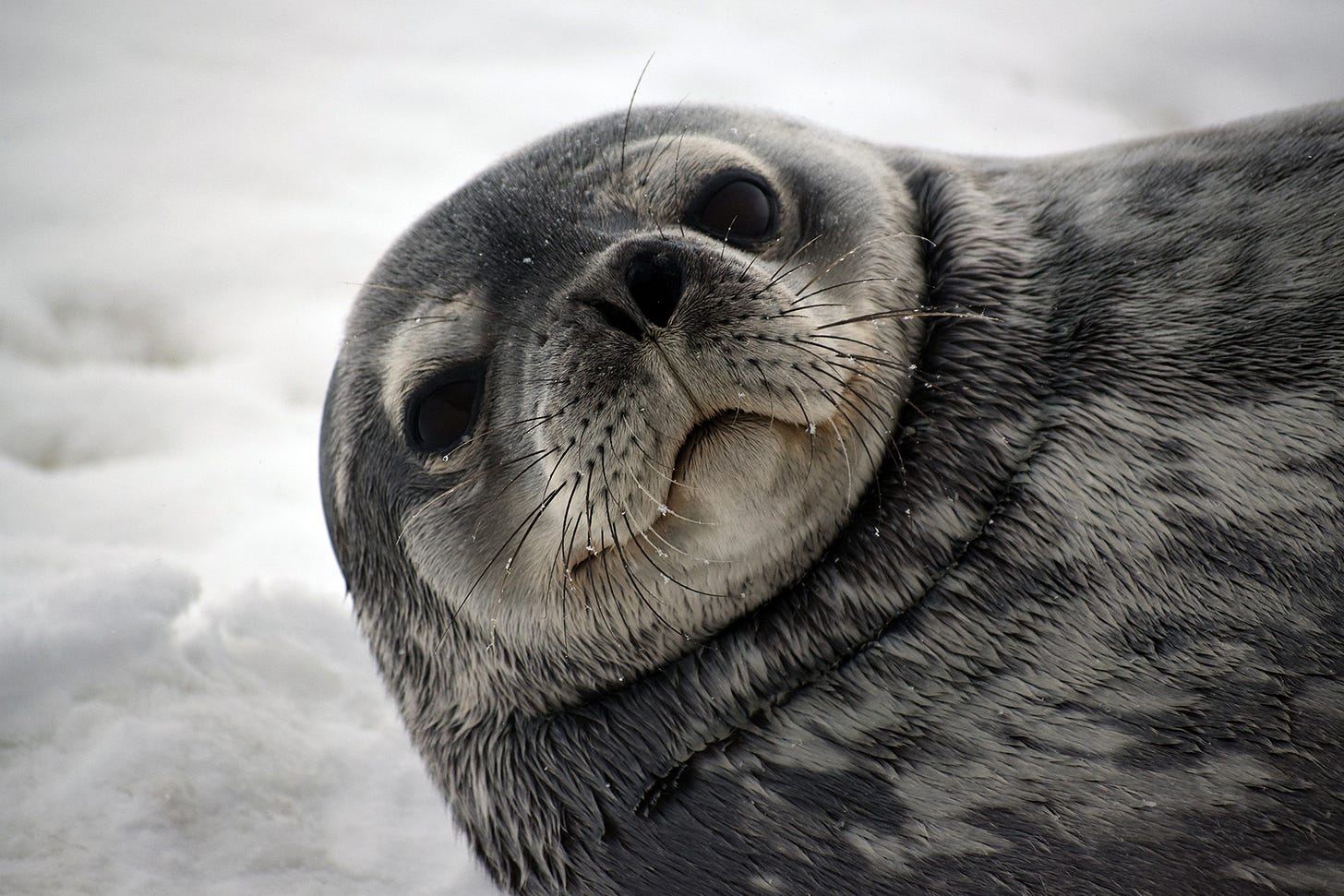News briefs: Ocean warming, and Covid cuts CO₂
Plus, UK commits to ending support for overseas fossil fuel projects ahead of COP26

As temperatures continue to rise, sea ice — habitat for penguins, seals, and other species — is shrinking, especially in Antarctica. To protect this spectacular region, The Pew Charitable Trusts and its partners are working with the Commission for the Conservation of Antarctic Marine Living Resources (CCAMLR) and its member governments to encourage the adoption of ecosystem-based fisheries management practices and the establishment of a network of large-scale marine protected areas around Antarctica.
Warming in the Arctic Ocean keeps Northern Sea Route open
At the opposite end, the Northern Sea Route, stretching more than 3,000 nautical miles between the Barents Sea west of Russia and the Bering Strait in the country’s east, traditionally opens from June through October, when higher temperatures break up ice. In 2020, voyages started a month early and will continue until at least the end of December. Record warmth meant slower freezing during the autumn, according to a Bloomberg report in maritime and offshore website gCaptain. The report quotes Samantha Burgess, deputy director at Europe’s Copernicus Climate Change Service, as saying, “This year could potentially become a turning point for the Arctic. This was a fairly exceptional year in that the warmer-than-average condition was incredibly persistent throughout the whole year.”
CO₂ emissions fell a record 7% in 2020
A global pandemic isn’t a good way to cut worldwide CO₂ emissions, but researchers say there was a record drop in 2020. A new report from the Global Carbon Project says global CO₂ emissions fell by 7% — the biggest yearly drop on record. A report from USA Today noted that transportation accounted for the largest share of the global decrease: Emissions from surface transport, such as car journeys, fell by approximately half at the peak of the Covid-19 lockdowns. The report estimated that the world will have put 37 billion tons of CO₂ in the air by the end of 2020. That’s down from 40.1 billion tons in 2019. Emissions dropped 12% in the U.S. and 11% in Europe but only 1.7% in China.
UK commits to ending support for overseas fossil fuel projects
UK Prime Minister Boris Johnson over the weekend committed Britain to becoming the first major industrialized nation to end public finance for fossil fuel projects overseas. At the Climate Ambition Summit, 75 leaders from all continents outlined new commitments ahead of the 2021 United Nations Climate Change Conference, COP26, scheduled for November in Glasgow. According to the UN, announcements at or just before the event, together with those expected early next year, mean that countries representing around 65% of global CO₂ emissions, and around 70% of the world’s economy, will have committed to reaching net zero emissions or carbon neutrality by early next year. Johnson said, “The UK has led the way with a commitment to cut emissions by at least 68% by 2030 and to end support for the fossil fuel sector overseas as soon as possible, and it’s fantastic to see new pledges from around the world that put us on the path to success ahead of COP26 in Glasgow. There is no doubt that we are coming to the end of a dark and difficult year, but scientific innovation has proved to be our salvation as the vaccine is rolled out. We must use that same ingenuity and spirit of collective endeavor to tackle the climate crisis, create the jobs of the future and build back better.”
Masks everywhere — even in the ocean
Personal protective equipment — masks, gloves, disinfectant wipes — are polluting shorelines, especially in California, according to this report from The Washington Post. Many masks contain plastics that taint ocean ecosystems and disrupt marine food chains, the report notes. The story quotes Adam Ratner, associate director of the conservation education program at the Marine Mammal Center, as saying, “We want to see people use masks, we want to see people use all of the protective equipment and stay healthy. But now is the time to stop this, and ocean trash knows no international borders.”
SEC to vote on Dodd-Frank disclosure rules for oil, gas companies
The SEC is scheduled to vote this week on whether to adopt a Dodd-Frank Act anti-corruption disclosure rule for oil, gas, and mining companies after a federal court and Congress scuttled previous versions of the regulation. The vote will come during a public meeting Wednesday, which also will include votes on whether to approve new rules for investment adviser marketing and direct listings on the New York Stock Exchange, Andrew Ramonas writes in Bloomberg Law. This is the third time the SEC has considered the resource extraction rule that requires public companies to report payments made to governments for extracting oil, gas, and minerals. The report notes that the oil and gas industry has fought the rule, saying their foreign competitors don’t need to make resource extraction payment disclosures. But companies like the U.K.’s BP (BP), China’s Sinopec, and Russia’s Gazprom already do this kind of reporting due to similar regulations in other countries.
